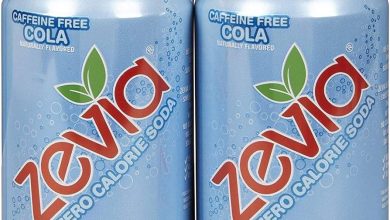English Muffins (Plain, Unenriched, Whole Wheat, Including Sourdough)
English muffins are a delightful breakfast staple enjoyed by many for their versatility and unique texture. Whether plain, whole wheat, or sourdough, they serve as the perfect base for toppings like butter, jam, or even eggs and cheese. These muffins, often round and slightly flat, feature a dense yet light texture that makes them a popular choice for toasting.
Nutritional Information (Per Serving)
| Nutrient | Amount |
|---|---|
| Energy | 235 kcal |
| Protein | 7.7 g |
| Saturated Fats | 0.259 g |
| Total Fat | 1.8 g |
| Carbohydrates | 46.0 g |
| Dietary Fiber | 2.7 g |
| Sugar | 0.0 g |
| Calcium | 52.0 mg |
| Iron | 0.89 mg |
| Magnesium | 21.0 mg |
| Phosphorus | 133.0 mg |
| Potassium | 131.0 mg |
| Sodium | 464.0 mg |
| Zinc | 0.7 mg |
| Copper | 0.129 mcg |
| Manganese | 0.357 mg |
| Selenium | 0.0 mcg |
| Vitamin C | 0.1 mg |
| Thiamine (Vitamin B1) | 0.181 mg |
| Riboflavin (Vitamin B2) | 0.154 mg |
| Niacin (Vitamin B3) | 1.566 mg |
| Vitamin B6 | 0.043 mg |
| Folate (Vitamin B9) | 37.0 mcg |
| Vitamin B12 | 0.04 mcg |
| Vitamin A | 0.0 mcg |
| Vitamin E | 0.0 mg |
| Vitamin D2 | 0.0 mcg |
Allergen Information
English muffins typically contain gluten, which is present in the wheat flour used in their preparation. They may also contain dairy products such as butter or milk in the recipe, depending on the specific version. Those with gluten, dairy, or yeast sensitivities should opt for gluten-free or dairy-free versions of the muffin, or ensure the recipe aligns with their dietary restrictions.
Dietary Preferences
These muffins can be adapted for various dietary preferences:
- Vegetarian: Most standard recipes are vegetarian-friendly as they do not contain meat.
- Vegan: Vegan versions are possible by replacing dairy ingredients with plant-based alternatives like almond milk and vegan butter.
- Gluten-Free: A gluten-free variation is available for those with gluten sensitivities or celiac disease, though the texture and taste may differ from the traditional version.
- Low-Sodium: For those watching their sodium intake, a lower-sodium recipe can be prepared by reducing or omitting salt in the batter.
Advice
To get the best results, toast your English muffins for a crispy and golden exterior while keeping the inside soft and airy. They are perfect for creating breakfast sandwiches, or simply serve them with your favorite spread. For added health benefits, opt for whole wheat or sourdough versions to boost fiber intake. When purchasing store-bought varieties, always check the ingredient list for hidden sugars or preservatives.
Conclusion
English muffins are a delicious and nutritious option that can be enjoyed in many ways. Whether served with jam, as a base for eggs Benedict, or paired with your morning coffee, they offer a satisfying texture and mild flavor. With the right modifications, they can cater to a variety of dietary needs, making them a versatile choice for any meal.










